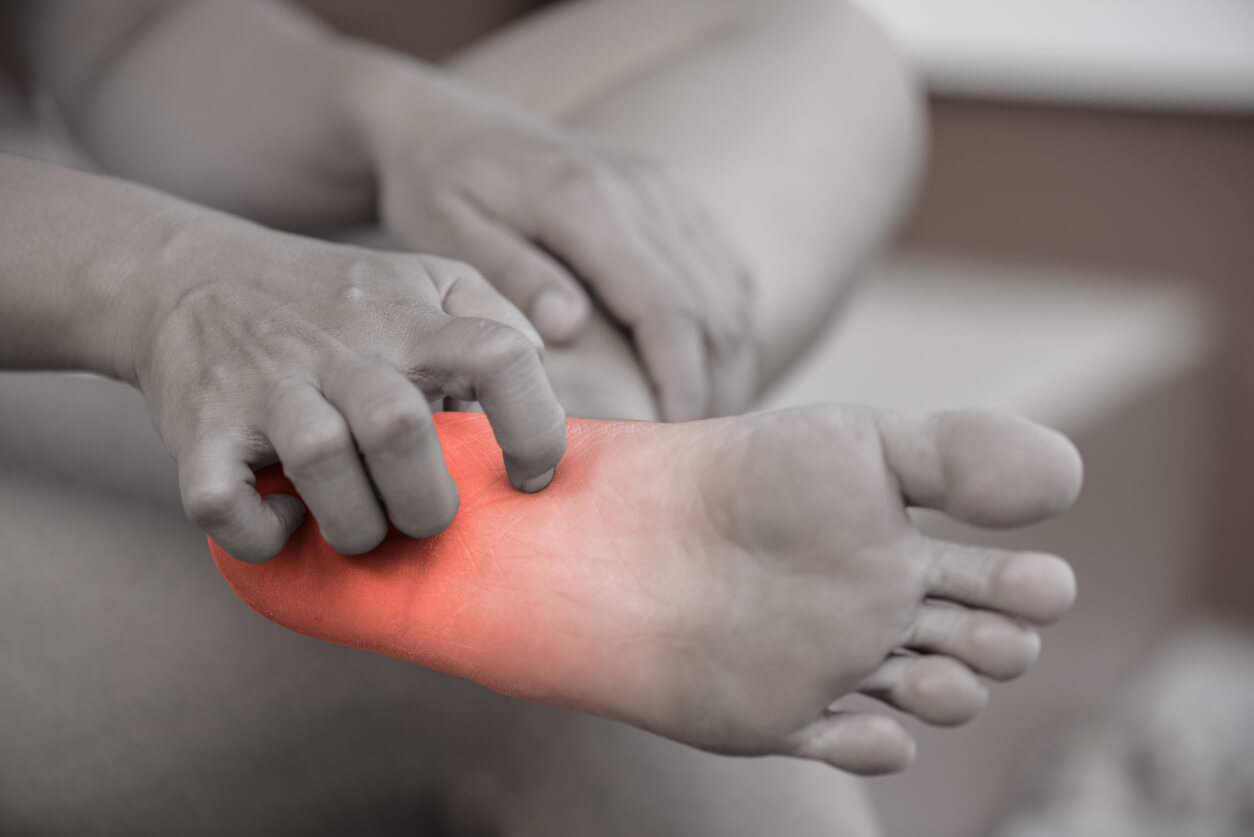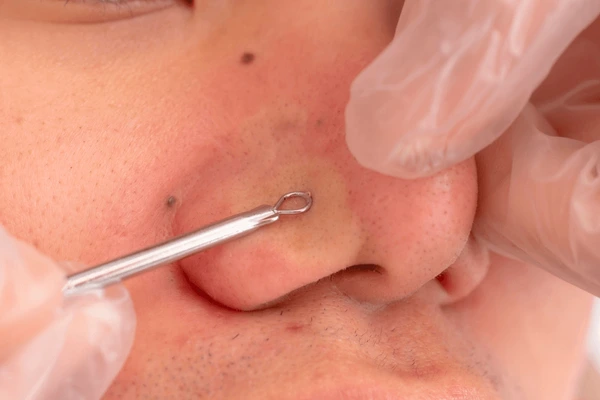What is Neuropathy (Nerve Damage)?
Your body is full of nerves that act like electrical cables: some carry signals from your brain and spinal cord to your muscles (motor nerves), others carry signals back from your body to your brain (sensory nerves), and some control automatic things like your heartbeat, digestion and sweating (autonomic nerves).
When these nerves get damaged — for example they don’t work properly, they get squeezed, injured or degraded — that condition is called neuropathy (or peripheral neuropathy if it’s in the nerves outside your brain/spinal cord). The damage disrupts the normal flow of signals and the result is odd sensations, pain, weakness, or loss of function.
Why It Matters to Tell If It’s Nerve Damage or Something Else
Because many of the symptoms of neuropathy — tingling, numbness, weakness — can also arise from other causes (joint problems, circulation issues, vitamin deficiency, muscle disorders). So asking “Is it nerve damage or something else?” is wise, because:
- If it is nerve damage, treating the underlying cause (e.g., controlling diabetes, avoiding toxins) early may slow or stop further damage.
- If it’s something else, you’ll want to find the correct cause (joint disease, vascular insufficiency, spine problem) rather than treating the wrong thing.
- Early action gives you a better chance of preserving function and avoiding complications (e.g., foot ulcers if you can’t feel your feet).
Recognising the Signs: When It Could Be Neuropathy
Is It Nerve Damage or Something Else? Know the Signs of Neuropathy. Here are typical signs of nerve damage broken down by type of nerve affected. If you spot several of these, you should consider the possibility of neuropathy.
Sensory nerve signs
Sensory nerves let you feel touch, temperature, pain, vibration, and position. When they’re damaged, you may notice:
- Tingling or “pins and needles” sensation, often in your feet or hands.
- Burning or stabbing pain, or sharp jabs of pain.
- Reduced ability to feel pain or temperature changes (so you might step on something hot and not notice).
- Extreme sensitivity to light touch (even a bedsheet might feel painful).
- A “stocking and glove” pattern: symptoms begin in feet (and perhaps hands), then may move upward.
- Loss of balance or coordination (because you can’t sense your feet properly).
Motor nerve signs
Motor nerves control muscles. If they are damaged you may see:
- Muscle weakness — difficulty lifting your feet, trouble gripping, climbing stairs becomes harder.
- Muscle cramps, twitching under the skin (fasciculations), or muscles wasting away.
- Loss of reflexes (e.g., ankle reflex may be missing).
Autonomic nerve signs
Autonomic nerves manage the automatic functions of your body. If they’re involved, you may notice:
- Dizziness or faintness when standing (because your blood pressure doesn’t adjust properly).
- Changes in sweating (too much or too little) or trouble regulating temperature.
- Digestive issues like constipation, diarrhea, feeling full early, or urinary/bladder control problems.
Patterns and clues that point toward neuropathy
- It often develops gradually rather than suddenly.
- It often affects both sides symmetrically (both feet or both hands) rather than just one side.
- The presence of known risk factors: diabetes, alcohol misuse, certain medications, vitamin deficiencies, toxins.
- Symptoms that are not simply explained by joint pain or obvious injury. If you have tingling/numbness rather than just joint ache — nerve damage becomes more likely.
When It Might Be Something Else
While neuropathy is a possibility, sometimes the symptoms are due to other causes. These alternatives include:
- Joint or muscle problems (arthritis, tendinitis, overuse). These usually cause pain with movement, localised discomfort, swelling, rather than numbness/tingling.
- Circulatory/vascular issues: poor blood flow can cause leg pain when walking, cold feet, colour changes.
- A spinal or nerve‑root (radiculopathy) problem: e.g., disc herniation in the spine pressing a nerve root — this often affects one side, may have back pain, is tied to posture.
- Pressure/compression of a nerve (e.g., carpal tunnel) which is localised to one area.
- Vitamin deficiency or metabolic issue alone: e.g., B12 deficiency may cause neuropathy‑style symptoms but the cause is nutritional rather than typical peripheral neuropathy.
- Sometimes there may be no clear cause (idiopathic neuropathy), which means the doctor doesn’t identify a clear trigger.
What Causes Neuropathy / Nerve Damage?
Understanding common causes helps you recognise when you’re at risk. Some of the major causes:
- Diabetes (especially when blood sugar is uncontrolled) is one of the most frequent causes — high blood sugar damages nerves and the small blood vessels supplying them.
- Vitamin deficiencies: especially vitamin B12, B1, B6, vitamin E, copper have been linked to neuropathy.
- Alcohol misuse: chronic heavy drinking damages nerves directly and through poor nutrition.
- Toxins/medications: some chemotherapy drugs, heavy metal exposure, or other toxins.
- Infections / autoimmune conditions: e.g., lupus, Sjögren’s, Guillain–Barré syndrome.
- Trauma or nerve compression: accidents, surgeries, repetitive motions, casts or braces that compress a nerve.
- Idiopathic: in many cases, no exact cause is found.
When to See a Doctor
You should seek medical help when you notice any of these:
- Persistent or worsening tingling, burning or numbness in your hands or feet.
- Muscle weakness that is interfering with your walking, grip or daily tasks.
- Autonomic symptoms — dizziness when standing, bladder/bowel/sexual problems.
- If you have risk factors (diabetes, alcohol use, vitamin deficiency, chemo) and now have sensation changes.
- Injuries or wounds on feet that you can’t feel (especially important for diabetics) — they may develop ulcers or infections.
What Can Be Done: Treatment & Management
While some nerve damage can’t be completely reversed, many steps can help and the earlier you act, the better.
Address the cause
- If you have diabetes: controlling your blood sugar is critical.
- Improve nutrition: correct vitamin deficiencies (B12, etc).
- Stop or reduce alcohol and stop smoking.
- Avoid or adjust medications known to cause neuropathy (discuss with your doctor).
- Protect nerves: avoid repetitive strain, avoid injuries, use good posture.
Manage the symptoms and maintain function
- Pain management: there are medications for nerve pain (under doctor supervision).
- Physical therapy: strengthening, balance training, gait training for foot/leg issues.
- Foot care: especially if you have reduced sensation in feet — inspect feet daily, wear well‑fitting shoes, avoid walking barefoot.
- Lifestyle support: regular exercise (good for circulation and nerve health), healthy diet, good sleep, stress management.
- If autonomic nerves are involved: specialist interventions for blood pressure control, bladder/bowel issues.
Follow‑up & monitoring
- Regular check‑ups to monitor progression, underlying causes, complications.
- Be aware of changes: if you get worse, or new symptoms arise, you may need more intensive intervention.
- Understand that nerve recovery can take time — nerves regenerate slowly.
Key Reminders & Practical Tips
- Don’t ignore “just tingling” or “just numbness” — if it persists, get it checked.
- Make note of risk factors (diabetes, alcohol, vitamin deficiency, medications, toxins) and mention these to your doctor.
- Keep track of symptoms: where they are (feet/hands), when they happen (night or day), what makes them better/worse.
- Ask your doctor whether your symptoms could be neuropathy and what tests are needed (blood tests, nerve studies, etc.).
- Focus on prevention: maintaining health, avoiding further nerve damage is as important as treating existing damage.
- Understand that if the cause is treatable (e.g., vitamin deficiency, improved blood sugar), you have a good chance of preventing further damage and improving symptoms.
- If you suspect a joint or spine cause instead (pain with movement, one side only, linked to certain positions) then ask about orthopaedic or spine evaluation too — sometimes “something else” is the real cause.
1. What are common signs of nerve damage (neuropathy)?
Tingling, numbness, burning, sharp pain, muscle weakness, or loss of balance—especially in hands or feet—can be signs of nerve damage.
2. How is nerve damage different from joint or muscle problems?
Nerve damage usually causes tingling or numbness, while joint or muscle issues often cause pain with movement or swelling.
3. What causes neuropathy?
Common causes include diabetes, vitamin B12 deficiency, alcohol misuse, certain medications, or nerve injuries.
4. Can nerve damage be cured?
Some types can improve with treatment, especially if caught early. Managing the cause (like blood sugar or nutrition) helps prevent it from getting worse.
5. When should I see a doctor?
If you notice ongoing numbness, tingling, weakness, or balance problems—especially with risk factors—see a doctor right away for proper diagnosis.
Conclusion:
If you feel tingling, burning, numbness, weakness, or notice changes in balance or body functions, it might be nerve damage — or something else. Watch for patterns and risk factors, and get checked early. Nerve problems can start slowly, so acting quickly can help protect your health and prevent bigger issues later.





